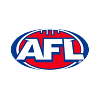OT - Judge: NCAA CFB Players can ask for cut of TV Revenue
- Thread starter Dave is a killer
- Start date
You are using an out of date browser. It may not display this or other websites correctly.
You should upgrade or use an alternative browser.
You should upgrade or use an alternative browser.
MaskedSonja
Registered User
kdb209
Registered User
- Jan 26, 2005
- 14,870
- 6
Note that the Judge ruled that the Athletes could go forward in a class action to sue for changes in NCAA rules to allow the athletes to negotiate group licencing rights for their names, images, and likenesses. She rejected calls for damages for past uses.
edit:
http://www.usatoday.com/story/sport...ss-action-lawsuit-obannon-amateurism/3479501/
http://sportsillustrated.cnn.com/college-basketball/news/20131109/obannon-ncaa-class-action-lawsuit/
edit:
http://www.usatoday.com/story/sport...ss-action-lawsuit-obannon-amateurism/3479501/
U.S. District Judge Claudia Wilken ruled the plaintiffs, including former and current Division I men's basketball players and Football Bowl Subdivision players, will be allowed to challenge the NCAA's current restrictions on what athletes might receive in exchange for playing sports. The ruling sets up the prospect of a fundamental change in scholarship rules and the concept of amateurism.
However, Wilken denied the plaintiffs' bid to certify a class that was seeking potentially billions of dollars in damages from the NCAA for improper use of athletes' names and likenesses in a variety of forms, including live television broadcasts.
The NCAA claimed victory regarding the judge's refusal to certify a class that would be entitled to damages, but it did not address the class that was certified – one that still could cause major issues for the association and its member schools and conferences.
http://sportsillustrated.cnn.com/college-basketball/news/20131109/obannon-ncaa-class-action-lawsuit/
Judge Wilken's order: The good for O'Bannon
O'Bannon's legal team can rightfully claim victory in certain aspects of Wilken's order. Crucially, Wilken has certified a class action against NCAA rules that prevent college athletes from entering into group licensing deals. This a significant development toward college athletes "being paid," and increases the possibility that these athletes will eventually form a trade association or union for entering into licensing deals.
Group licensing deals are common in professional sports. Players associations negotiate with trading card and video game companies for the use of players' image, likeness and names. The NCAA bars student-athletes, either as individuals or groups, from entering into such contracts. The prohibition is arguably a violation of antitrust and intellectual property laws. Antitrust law is implicated because the NCAA and its members have, in O'Bannon's view, joined hands with companies to prevent student-athletes from negotiating licensing deals. If those deals were permitted, there would be more competition in the business of college sports. Television networks would have to negotiate not only with the NCAA but with student-athletes for broadcast rights, while the NCAA and student-athletes might strike separate licensing contracts with two different video game publishers. More competition normally means faster innovation, greater choice, and cheaper prices for consumers. Intellectual property law is implicated because of ownership and value issues related to student-athletes' images and likenesses. Should it take place, a trial next June would center on these topics.
Last edited:
Note that the Judge ruled that the Athletes could go forward in a class action to sue for changes in NCAA rules to allow the athletes to negotiate group licencing rights for their names, images, and likenesses. She rejected calls for damages for past uses.
edit:
http://www.usatoday.com/story/sport...ss-action-lawsuit-obannon-amateurism/3479501/
http://sportsillustrated.cnn.com/college-basketball/news/20131109/obannon-ncaa-class-action-lawsuit/
My reading suggests that she rejected the historical aspect as far as a Class Action Suit. Individuals could still seek damages separately.
To the surprise of O'Bannon's attorneys, Wilken denied certification on a key purpose of the lawsuit: that college athletes be compensated for the past use of their image and likeness on television and in video games. Wilken found O'Bannon had not persuasively shown common harm to members of his purported class.
Of particular interest to Wilken was O'Bannon's use of alternative histories to explain harm. Chiefly, Wilken questioned the actual impact of scholarship student-athletes staying in college had they enjoyed financial incentives to do so. O'Bannon's expert, Roger Noll, presented evidence that had they been compensated, some star college basketball players would have stayed in school rather than leave early to pursue the NBA. Wilken found Noll's study problematic. In her view, student-athletes staying in college would have meant fewer scholarships for other players. Some student-athletes would have been "displaced", meaning they would have never received a scholarship to play D-I hoops. Wilken stressed these "displaced student-athletes . . . would not have suffered injuries as members of the teams for which they actually played because . . . they would never have been able to play for those teams." In fact, the displaced student-athletes likely benefited by star underclassmen jumping to the NBA. Therefore, Wilken reasoned, the displaced student-athletes did not belong in O'Bannon's class.
Wilken also took issue with O'Bannon's portrayal of harm caused by NCAA-licensed video games. These games contained smaller rosters than actual rosters. Wilken reasoned some real players were therefore not in those video games. Without a persuasive way of determining who made and didn't make the cut, Wilken rejected the class.
kdb209
Registered User
- Jan 26, 2005
- 14,870
- 6
My reading suggests that she rejected the historical aspect as far as a Class Action Suit. Individuals could still seek damages separately.
Correct. She rejected certification of class action for the plaintiffs seeking past damages. which was all he was asked to rule on, leaving them only with the option of separate actions - making it more difficult and much more expensive for the plaintiffs (who would have to prove individual damages) and likely reducing the scope of potential damages.
Correct. She rejected certification of class action for the plaintiffs seeking past damages. which was all he was asked to rule on, leaving them only with the option of separate actions - making it more difficult and much more expensive for the plaintiffs (who would have to prove individual damages) and likely reducing the scope of potential damages.
Okay, yes, it makes sense for them to try the class action route to give more heft to that aspect of the suit.
PBS's Frontline picks up the story:
http://www.pbs.org/wgbh/pages/frontline/sports/money-and-march-madness/ruling-in-ncaa-case-may-bring-some-players-closer-to-share-of-profits/
There are links to the ruling, and comments by the legal teams.
http://www.pbs.org/wgbh/pages/frontline/sports/money-and-march-madness/ruling-in-ncaa-case-may-bring-some-players-closer-to-share-of-profits/
There are links to the ruling, and comments by the legal teams.
Ad
Upcoming events
-

-

-

-
 Series Winner Carolina Hurricanes vs NY IslandersWagers: 1Staked: $100.00Event closes - 3 days from now
Series Winner Carolina Hurricanes vs NY IslandersWagers: 1Staked: $100.00Event closes - 3 days from now- Updated:
-

